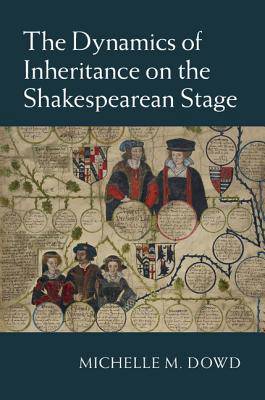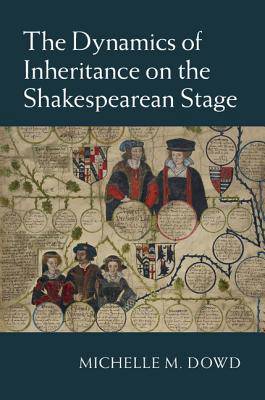
Je cadeautjes zeker op tijd in huis hebben voor de feestdagen? Kom langs in onze winkels en vind het perfecte geschenk!
- Afhalen na 1 uur in een winkel met voorraad
- Gratis thuislevering in België vanaf € 30
- Ruim aanbod met 7 miljoen producten
Je cadeautjes zeker op tijd in huis hebben voor de feestdagen? Kom langs in onze winkels en vind het perfecte geschenk!
- Afhalen na 1 uur in een winkel met voorraad
- Gratis thuislevering in België vanaf € 30
- Ruim aanbod met 7 miljoen producten
Zoeken
€ 183,45
+ 366 punten
Uitvoering
Omschrijving
Early modern England's system of patrilineal inheritance, in which the eldest son inherited his father's estate and title, was one of the most significant forces affecting social order in the period. Demonstrating that early modern theatre played a unique and vital role in shaping how inheritance was understood, Michelle M. Dowd explores some of the common contingencies that troubled this system: marriage and remarriage, misbehaving male heirs, and families with only daughters. Shakespearean drama helped question and reimagine inheritance practices, making room for new formulations of gendered authority, family structure, and wealth transfer. Through close readings of canonical and non-canonical plays by Shakespeare, Webster, Jonson, and others, Dowd pays particular attention to the significance of space in early modern inheritance and the historical relationship between dramatic form and the patrilineal economy. Her book will interest researchers and students of early modern drama, Shakespeare, gender studies, and socio-economic history.
Specificaties
Betrokkenen
- Auteur(s):
- Uitgeverij:
Inhoud
- Aantal bladzijden:
- 304
- Taal:
- Engels
Eigenschappen
- Productcode (EAN):
- 9781107099777
- Verschijningsdatum:
- 19/05/2015
- Uitvoering:
- Hardcover
- Formaat:
- Genaaid
- Afmetingen:
- 152 mm x 231 mm
- Gewicht:
- 635 g

Alleen bij Standaard Boekhandel
+ 366 punten op je klantenkaart van Standaard Boekhandel
Beoordelingen
We publiceren alleen reviews die voldoen aan de voorwaarden voor reviews. Bekijk onze voorwaarden voor reviews.









